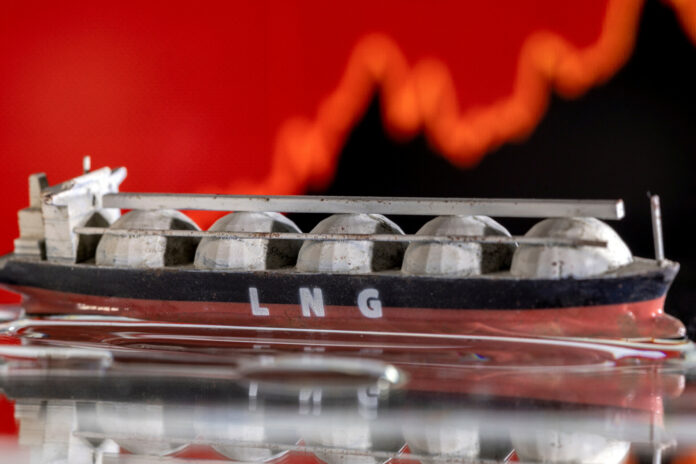The European Commission is about to present on Tuesday a plan to ban new contracts for the purchase of Russian LNG and facilitate the expiration of existing agreements.
“Brussels will present the roadmap for the gradual and permanent reduction of energy dependence on Russia, with the ultimate goal of completely eliminating imports of Russian fossil fuels by 2027,” European sources told Naftemporiki.
Among the key measures planned by the Commission are a ban on signing new contracts for the import of liquefied natural gas (LNG), as well as legal avenues for cancelling existing agreements without European companies facing financial penalties for “take or pay” clauses, the same sources explained.
The Commission is even considering complementary mechanisms, such as imposing tariffs or quotas on Russian natural gas, with the dual aim of reducing its competitiveness and limiting the revenues that the Kremlin continues to earn.
Critical moment
The announcement comes at a particularly critical moment for Europe’s energy security, however, as EU natural gas reserves are below previous levels and Russian supplies via Ukraine have been drastically reduced, following the expiry of the transit agreement in early 2025. “Europe faced another winter with lower levels of natural gas storage than in the previous two years, and in a global environment characterised by increasing competition for LNG, particularly from Asia,” energy market representatives noted.
According to the think tank Ember, however, countries such as Italy, the Czech Republic and France, continue to import large quantities of Russian LNG. The Centre for Research on Energy and Clean Air (CREA) noted that by 2024, EU member states had invested around seven billion euros in Russian LNG. The quantity increased by nine percent compared to 2023.
Electricity price increase
Energy market participants warned, however, that with European gas reserves at very low levels, the Commission’s decision could increase pressure on prices and translate into a significant rise in electricity markets.
The termination of Russian gas transit through Ukraine since January, due to the non-renewal of the agreement with Gazprom, has exacerbated the vulnerabilities of the European energy system, especially in Central and Eastern European countries that do not have sufficient alternative outlets. Since the invasion of Ukraine in February 2022, the EU has reduced its exposure to Russian gas from around 45% of total supplies to just 13%.
However, LNG imports have increased, now accounting for 19% of supply in 2024. To meet the target of filling natural gas storage facilities by 90% by September 30 – the threshold considered the minimum to ensure security of supply in the winter – Europe will need to have around 57 billion cubic meters of natural gas in its facilities.
There are also plans to reduce imports of nuclear fuel, especially enriched uranium, on which several Eastern European countries whose nuclear infrastructure was designed by Russia still rely.
Reactions from member states
Following the attack on Ukraine in 2022, the EU imposed numerous sanctions on energy exports from Russia, including coal and oil.
Several European countries, including Hungary and Slovakia, are reacting, however, speaking of an energy crisis if they are no longer able to obtain Russian natural gas.














